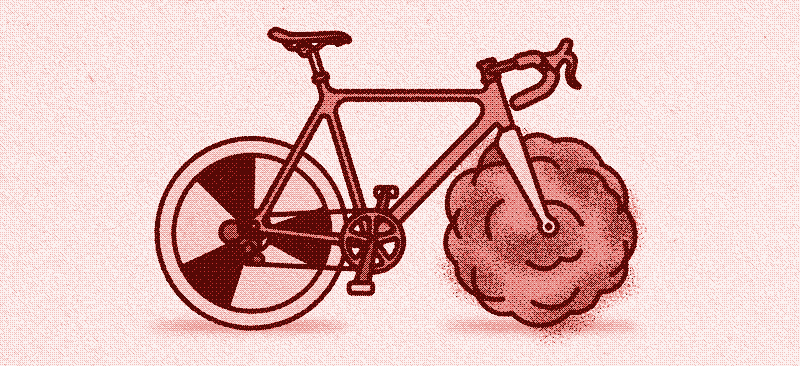- cross-posted to:
- environment
cross-posted from: https://beehaw.org/post/631577
A great read+great magazine.
AI Generated TL;DR (tldrthis.com):
Cycling is the most sustainable form of transportation, but the bicycle is becoming increasingly damaging to the environment. Before the 1980s, most bicycle components were interchangeable between frames of different brands and generations. An academic study on circularity in the bike manufacturing industry observes a significant increase in defective components compared to unassisted bicycles and concludes that “the great dynamics of the market due to regular innovations, product renewals, and the lack of spare parts for older models make the long-term use by customers much more difficult than for conventional bicycles.” However, a recent study calculated the lifecycle emissions of a carbon fiber electric cargo cycle to be 80 gCO2 per kilometer – only half those of an electric van (158 gCO2/km). The decreasing sustainability of bikes is not a technological problem, and it’s not unique to bicycles. However, shared bicycles are unlikely to become more sustainable than private bicycles because they always require rebalancing and a high-tech infrastructure to make the service work.

The infographic on carbon emissions per style of bicycle, with cars as the (predictably) most damaging bar on the graph is very interesting. I hadn’t anticipated materials in manufacturing to make quite this intense of a difference. Makes me glad I bought a 1980s steel frame junker that I maintain and repair as issues crop up, but that kind of “project bicycle” isn’t for everyone, let alone the compatibility issues driven by companies (likely to increase profit).
Something to keep in mind as I recommend bicycles to people who may not be as affectionate towards old beat up projects as I.
Yeah it’s crazy. The enshittification of the bicycle–something that never should have happened but is happening somewhat.


